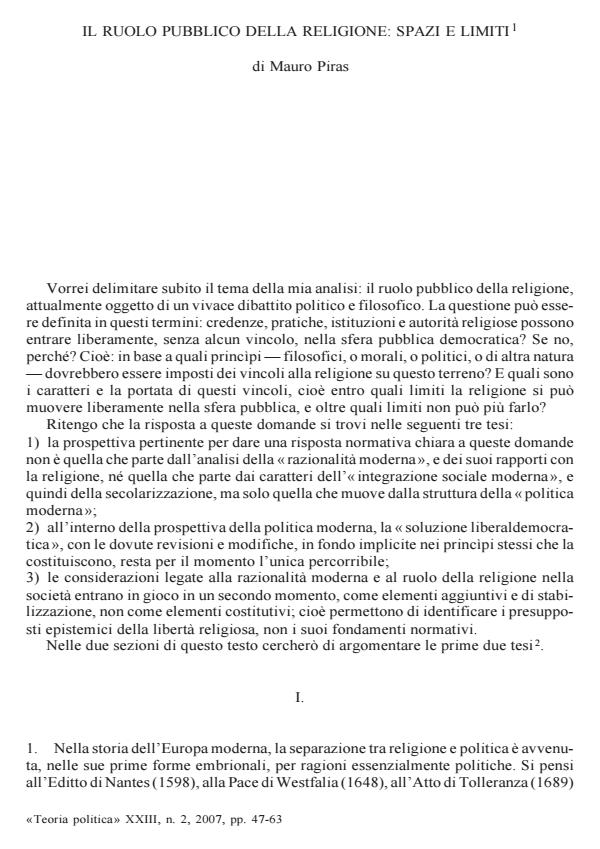Il ruolo pubblico della religione: spazi e limiti
Titolo Rivista TEORIA POLITICA
Autori/Curatori Mauro Piras
Anno di pubblicazione 2007 Fascicolo 2007/2
Lingua Italiano Numero pagine 17 P. 47-63 Dimensione file 336 KB
DOI
Il DOI è il codice a barre della proprietà intellettuale: per saperne di più
clicca qui
Qui sotto puoi vedere in anteprima la prima pagina di questo articolo.
Se questo articolo ti interessa, lo puoi acquistare (e scaricare in formato pdf) seguendo le facili indicazioni per acquistare il download credit. Acquista Download Credits per scaricare questo Articolo in formato PDF

FrancoAngeli è membro della Publishers International Linking Association, Inc (PILA), associazione indipendente e non profit per facilitare (attraverso i servizi tecnologici implementati da CrossRef.org) l’accesso degli studiosi ai contenuti digitali nelle pubblicazioni professionali e scientifiche.
How legitimate is the current demand that religion play an ever more prominent role in public life? Should religious institutions and beliefs enjoy free rein in the life of a democracy or should they be subject to certain limitations, and if so, which ones? The answers to these questions lie in the following three theses. First of all, a correct system of norms cannot be based on an analysis of modern rationality, on the relationship between modern rationality and religion or on an analysis of the process of secularization. It can only be based on an analysis of modern political structures. Secondly, it therefore holds that the « liberal-democratic solution », duly revised and modified, provides the only way forward. In particular the Rawlsian concept of «public reason» provides ample room for religion in public life while allowing for limitations to be devised and defined. Last, the concepts of modern rationality and secularization should be taken into consideration at a later stage, as epistemic premises of religious freedom and not as fundamental norms.
Mauro Piras, Il ruolo pubblico della religione: spazi e limiti in "TEORIA POLITICA" 2/2007, pp 47-63, DOI: